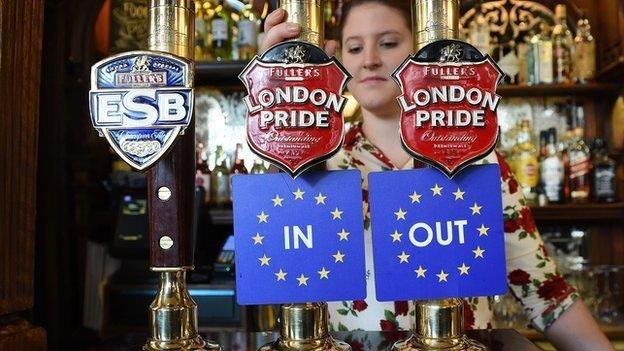Cameron's EU 'whistle-stop' tour: Mission accomplished?
- Published
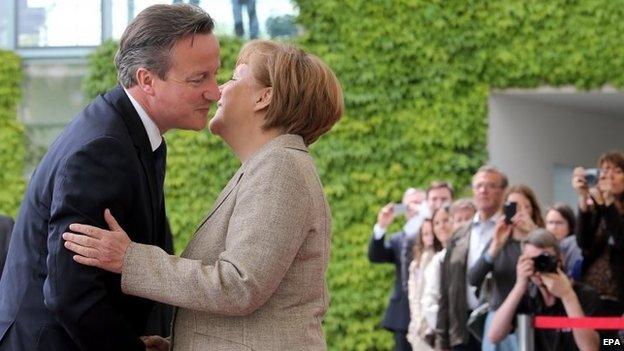
Angela Merkel (right) was uncharacteristically outspoken during her meeting with David Cameron
There was a lot of talk of shuttle diplomacy this week and of David Cameron's "whistle-stop tour of Europe", but in the end the British prime minister actually only popped in to four European capitals between Thursday morning and Friday afternoon.
So did the trip merit the fanfare? Was it a success?
Well, when the most powerful woman in the world (that is, Angela Merkel) responds to the prime minister's wish-list for a different kind of EU with "where there's a will there's a way" and says that, yes, treaty change might indeed be possible - that must sound like success to him.
The European tour this week served a definite purpose. In the long run-up to the UK general election, David Cameron and his ministers irritated a fair few by grandstanding and performing to the Eurosceptic gallery at home while abroad on EU business.
This was a chance to try to repair burned bridges.
Appetite for change
Before the nitty-gritty and sometimes probably nasty process of negotiating a new EU relationship for Britain, this was a chance for the prime minister to say to other leaders: "Look, this is not about the UK versus the rest of Europe. We do have a lot in common."
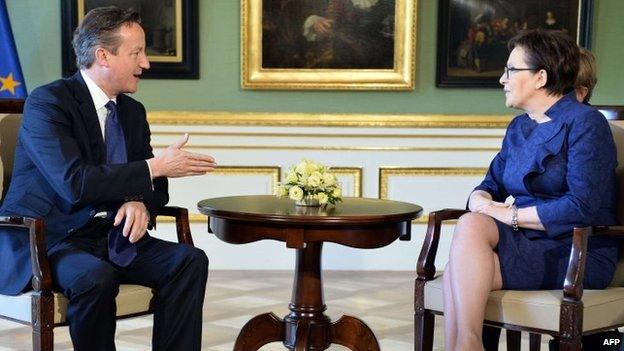
Poland - the emerging new EU power - was one of Mr Cameron's four tour stops this week
What Europe's leaders want to feel from Britain as its seeks to change the EU is that this is a process, not a diktat.
In this pre-negotiation stage, tone is as important as content.
So, in Paris, Mr Cameron carefully listed issues where France and Britain stand side-by-side; while in the Netherlands, he described the country as an old friend and like-minded ally.
Mr Cameron needs other EU leaders onside to pass meaningful reforms.
This week's four tour stops were carefully chosen.
The Netherlands and Germany are generally UK-friendly: open to more competitiveness, a stronger single market and less red tape.
France is trickier but, alongside Germany, a traditional EU heavyweight - and therefore a must-visit - while Poland is the emerging new EU power.
It is Britain's ally over tough sanctions against Russia but, as we saw in the rather uncomfortable meeting with Prime Minister Ewa Kopacz on Friday, Poland will be a fierce opponent of scrapping migrant benefits.
On his travels David Cameron found a widespread appetite for change. The tricky part will be persuading other EU leaders that his way is the best way.
But when it comes to the EU's most powerful country, Germany, the details of this trip were less important.
Chancellor Merkel, ever the pragmatist, has an eye on the big picture - Europe on the world stage.
She worries that the EU without the British economy, the British military and British diplomatic expertise is weaker and more fragmented in the face of a ruthlessly ambitious China and, in particular, having grown up in communist East Germany, of a newly aggressive Russia just next door.
Angela Merkel, normally so risk averse, was uncharacteristically outspoken standing side-by-side with David Cameron.
"I want to find a solution," she said to him.
And generally in the EU, when Germany speaks, others follow.
- Published1 February 2016
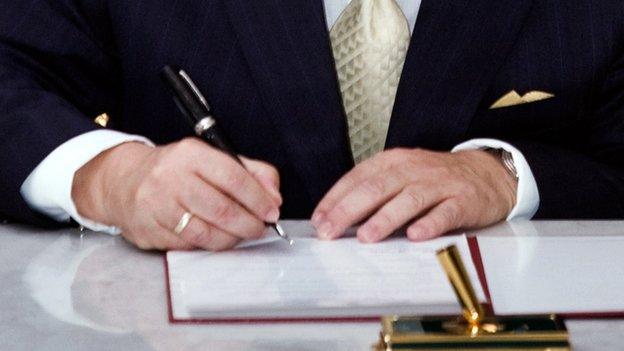
- Published28 May 2015
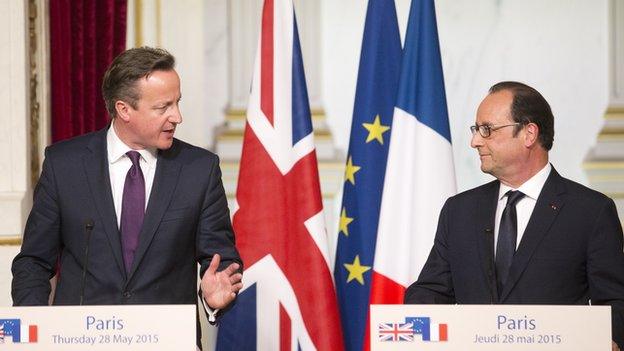
- Published25 May 2015
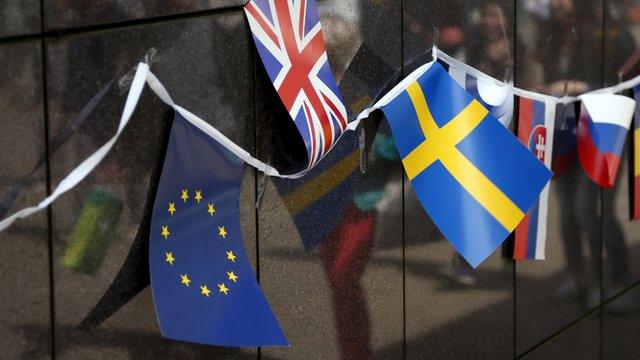
- Published19 May 2015
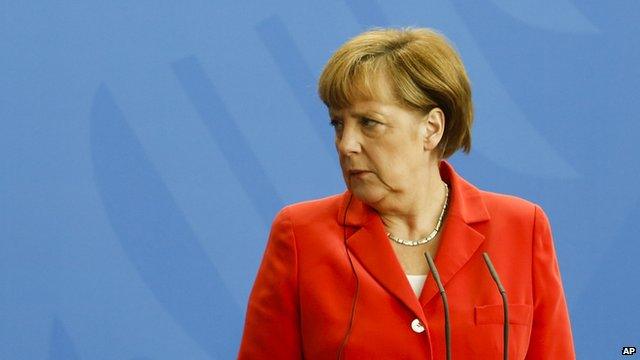
- Published27 May 2016
